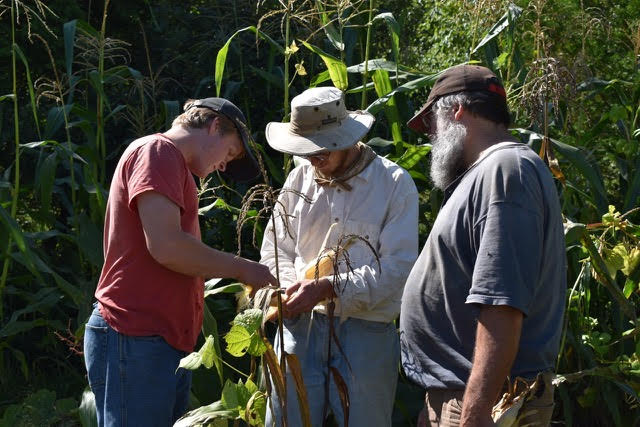
During his childhood, Theo spent 3 years living abroad in Cambodia with his family through Mennonite Central Committee. Theo reflects on his time abroad as a coming of age experience to be suddenly confronted of the implications of our North American life to people on the other side of the world. Inspired by the Cambodian saying, "When the elephants fight, the ants get trampled," Theo chose the PACS program to further explore his role and responsibility in the world.
As part of PACS 390, Theo undertook a placement with Global Youth Volunteer Network located on the UWaterloo North Campus. The project was partnering with Indigenous student groups from the University of Waterloo, Guelph and Laurier to teach about food sovereignty and participate in food canning workshops to learn food preservation skills.
In Ontario we are unable to grow food for a large part of the year, because of our climate; therefore, being able to preserve food in the summer and fall to eat in the winter is a vital part of individual and societal health, sustainability, and food sovereignty.
For Theo, growing and properly preserving his own food is a lifestyle choice he makes as a commitment to living responsibly. Two days a week, Theo’s role was growing the produce for these canning workshops in the North Campus gardens. The workshops focused on canning tomato sauce and salsa, as well as pickled carrots and beets. Theo notes that,
Canning is only one of the skills that is important for food preservation, I would encourage everyone to seek out more information about how they can engage in food preservation at their own homes.
While tending to the garden Theo was grateful to meet gardeners of other backgrounds who were growing plants from their home countries.
There was one man who was growing beautiful gourds or melons that I had never seen before. He didn’t speak any English but one day he brought along his son who could and I was finally able to compliment him about his garden.
The rest of the week, Theo worked with his family on their farm. At home Theo has a wide variety of roles to fill on their farm from planning and growing the family garden, to caring for livestock, and mending fences. This year Theo was able to plant a new type of heirloom seed of zucchini and use an indigenous technique from North Dakota to dry the zucchini outside.
Outside of the classroom Theo is involved in the Chapel program at Grebel, organizing services for students. Off campus Theo serves on Mennonite Church Eastern Canada’s Truth and Reconciliation Working Group for Waterloo Region, and the Brubacher House committee. This committee works to mediate between the University of Waterloo, Conrad Grebel, and the Mennonite Historical Society of Ontario, to ensure the needs of the museum are being met.
As one of the youngest people in the room in a lot of these meetings, I feel that I am often looked towards to provide representation to the voice of students and our generation. I really appreciate learning from people who are decades older than me and hearing their experiences and journeys.
After graduation, Theo is trying to navigate the current economics of farming in order discover a path which would allow him to farm responsibly and try new seed varieties.